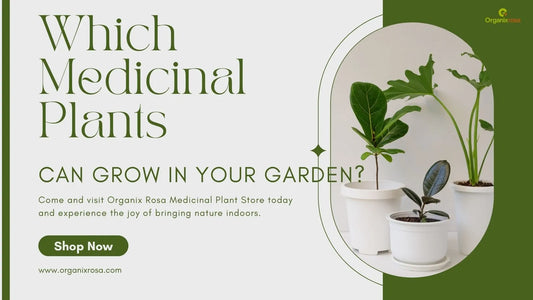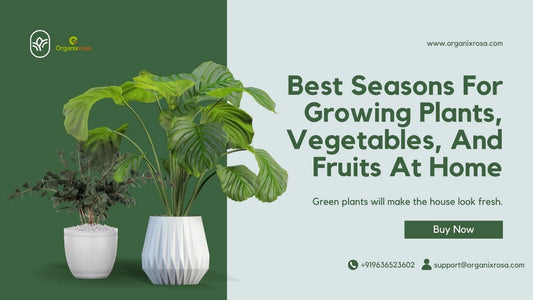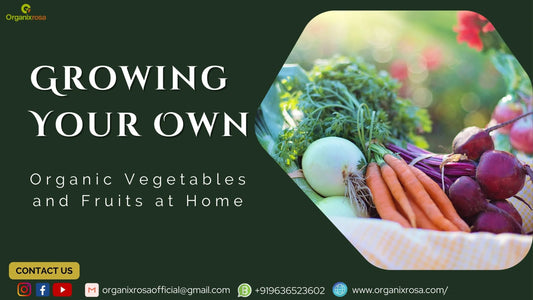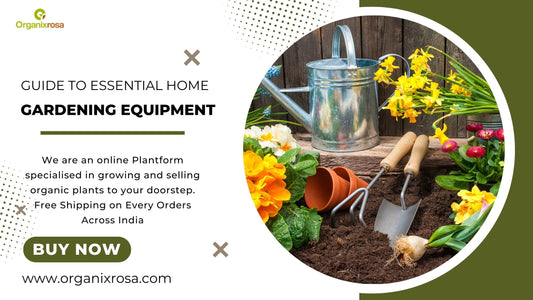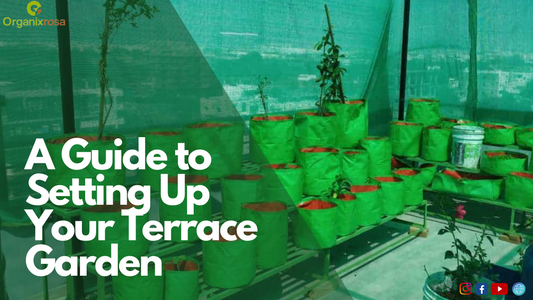
The Benefits of Organic Plants: Going Natural is the Way to Grow
Introduction
Do you dream of having a lush garden full of vibrant, healthy plants? Are you concerned about the impact of chemicals on your health and the environment? Look no further - organic plants are here to revolutionize how you grow and live! In this comprehensive guide, we will explore the benefits of organic plants, how to grow them successfully, essential plant care tips, and even some recommendations for beginners. Get ready to uncover the secrets to thriving gardens and healthier living!
1. Organic Plants vs. Conventional Plants
Before we dive into the specifics of organic plants, let's take a moment to understand the stark differences between organic and conventional cultivation methods. Conventional farming relies heavily on synthetic fertilizers, pesticides, and genetically modified seeds. Although it provides higher yields in the short term, it comes at a high cost to the environment and our wellbeing wellbeing.
-
Environmental Impact of Conventional Farming
Conventional farming practices contribute to soil erosion, water pollution, and the destruction of beneficial insects and organisms. The excessive use of synthetic chemicals contaminates our water sources and disrupts delicate ecosystems and biodiversity. Organic plants, on the other hand, embrace sustainable practices that nurture and protect the environment.
-
Health Risks Associated with Chemicals in Foods
One of the primary concerns related to conventional agriculture is the presence of harmful chemicals in our food. Pesticide residues and synthetic fertilizers can leave a toxic trace on produce, potentially impacting our health over time. Organic plants offer a safer alternative, free from potentially harmful substances, promoting a healthier and more balanced diet.
-
Advantages of Organic Plants
Beyond the environmental and health benefits, organic plants deliver many advantages. They tend to have improved taste, flavor, and a higher nutritional content. Organic farming emphasizes soil fertility and biodiversity, ensuring plants receive all the necessary nutrients naturally. By choosing organic, you also support local farmers and contribute to the preservation of traditional, sustainable agricultural practices.
2. How to Grow Organic Plants
Now that we understand the merits of organic plants let's explore the fundamental steps to grow them successfully. Following these guidelines will lead you to a thriving organic garden!
-
Choosing Organic Seeds or Seedlings
The journey to organic plants begins with selecting the right seeds or seedlings. Opt for organic, non-GMO varieties to ensure your plants start their lives free from harmful genetic modifications and chemical treatments.
-
Preparing the Soil Naturally
Building healthy, nutrient-rich soil is essential for organic plant growth. Start by testing the pH levels and amending the soil with organic matter such as compost, leaf mold, or well-rotted manure. This process enhances soil structure, encourages beneficial microbial activity, and provides the perfect foundation for your organic plants to thrive.
-
Maintaining a Balanced Ecosystem in the Garden
Creating a balanced ecosystem in your garden is vital to reducing pest issues naturally. Encourage beneficial insects such as ladybugs, lacewings, and bees by planting flowers that attract them. Additionally, companion planting can help repel pests and attract pollinators. For example, planting marigolds with tomatoes can deter nematodes, while basil near your peppers can enhance their flavor and repel aphids.
-
Proper Watering Techniques
Watering your organic plants correctly is vital to their overall health and productivity. Consider using drip irrigation or soaker hoses that deliver water directly to the root zone to conserve water. This method minimizes evaporation and reduces the risk of fungal diseases caused by wet foliage. Water deeply but infrequently to encourage profound root growth and ensure plants receive adequate hydration without becoming waterlogged.
-
Organic Pest Control Methods
Dealing with pests is an inevitable part of gardening, but organic plants offer effective pest control options without resorting to harmful chemicals. Use natural insect-repelling plants like marigolds, garlic, or chrysanthemums to deter pests. Physical barriers like row covers can protect your crops from insects, birds, and other problems. Handpicking pests and introducing beneficial insects like ladybugs or praying mantises can help maintain a balance in your garden ecosystem.
3. Organic Plant Care Tips
To keep your organic plants thriving throughout the growing season, incorporate these essential care tips into your routine:
- Mulching and Composting
Mulching around your plants with organic materials like straw, wood chips, or compost helps retain soil moisture, suppress weeds, and regulate soil temperature. Additionally, incorporating compost into the soil enriches it with essential nutrients over time, providing ongoing nourishment for your plants.
- Crop Rotation for Healthy Soil
Practice crop rotation in your garden to prevent nutrient imbalances and ward off diseases or pests. Rotating plant families yearly prevents the build-up of specific problems or diseases associated with particular crops. For example, moving your tomatoes or peppers to a different bed each year can help maintain soil fertility and reduce soil-borne diseases.
- Companion Planting for Natural Pest Control
As mentioned earlier, companion planting is beneficial for pest control and can also enhance plant growth. Certain plants have natural properties that repel pests or attract beneficial insects. For instance, planting basil next to your tomatoes can improve their development and flavor while reducing pest issues.
- Pruning and Thinning Properly
Regular pruning and thinning allow organic plants to develop strong branches and focus their energy on producing quality fruits or flowers. Remove dead or damaged components to maintain plant health and improve airflow, reducing the risk of fungal diseases. Additionally, thinning overcrowded seedlings helps promote healthy growth and prevents competition for nutrients.
- Avoiding Synthetic Fertilisers and Chemicals
One of the fundamental principles of organic gardening is avoiding synthetic fertilizers and chemicals. Instead, rely on natural options such as compost, compost tea, bone meal, or seaweed extract to provide the necessary nutrients for your plants. Organic fertilizers nourish plants and contribute to the long-term health of the soil and the ecosystem.
4. Organic Plant Food
- Importance of Nutrient-Rich Soil
To achieve optimal growth and health, organic plants depend on nutrient-rich soil. Ensuring that your garden soil is abundant in organic matter like compost, leaf mold, or well-aged manure is the first step toward providing plants with the essential nutrients they need.
- Natural and Organic Fertilisers
While organic matter enriches the soil, specific nutrients may still require supplementation. Organic fertilizers derived from natural sources like fish emulsion, blood meal, bone meal, or kelp extract provide a balanced blend of nutrients. These slow-release fertilizers nourish plants over time, avoiding nutrient imbalances and reducing the risk of burning or damaging delicate root systems.
- Compost Tea and Vermicomposting
Compost tea is a microbial-rich liquid fertilizer produced by steeping compost in water. It is an excellent addition to your organic plant care routine, delivering a diverse range of beneficial microorganisms that promote plant health, disease suppression, and overall vitality. Vermicomposting, which involves using worms to break down organic waste, produces nutrient-rich castings that can be used as a natural plant food.
- Ensuring Adequate Micronutrient Levels
Micronutrients are essential for robust plant growth; deficiencies can affect overall productivity. Organic gardeners can maintain adequate micronutrient levels by incorporating natural sources such as kelp meal or rock dust into the soil. This ensures that plants have access to a broad spectrum of micronutrients, promoting healthy development and increased resilience to stress.
5. Organic Plants for Beginners
Organic plants are an excellent starting point if you're new to gardening. Here are a few recommendations for easy-to-grow organic plants that will boost your gardening confidence:
Easy-to-Grow Organic Plants
- Leafy greens such as spinach, lettuce, and kale are forgiving crops that grow well in various climates.
- Herbs like basil, rosemary, and mint are known for their resilience and ability to thrive outdoors and indoors.
- Radishes and carrots are root vegetables that require little maintenance and yield satisfying results for beginners.
Recommended Varieties for Different Regions
To increase your chances of success, select plant varieties well-suited to your specific climatic conditions. Local nurseries and seed catalogs often recommend the best organic plant varieties based on your region.
Starting with Herbs and Leafy Greens
Herbs and leafy greens are excellent for beginners due to their relatively quick growth and resistance to pests. These plants can be grown in containers or small garden beds, making them suitable for those with limited outdoor space.
Container Gardening for Limited Spaces
Only some people can access a sprawling garden, which should keep you from enjoying organic plants. Container gardening allows you to grow various plants on your balcony, patio, or windowsill, from herbs to tomatoes. Just remember to provide adequate sunlight and water for your potted plants to thrive.
6. Types of Organic Plants
Organic plants encompass a wide variety of crops, flowers, and herbs. Let's explore some popular choices within different categories:
Organic Fruits and Vegetables
- Tomatoes, cucumbers, and peppers are classic examples of organic vegetables that can be grown successfully.
- Strawberries, blackberries, and blueberries are delicious organic fruits that thrive in many regions.
Organic Flowers and Ornamentals
- Roses, marigolds, and sunflowers can create stunning organic flower displays and attract beneficial insects to your garden.
- Lavender, chamomile, and daisies add beauty and fragrance while providing homegrown herbal teas and natural remedies ingredients.
Organic Herbs and Medicinal Plants
- Mint, basil, and oregano are staple herbs in many kitchens, providing fresh flavor to culinary creations.
- Aloe vera, Echinacea, and lavender are renowned for their medicinal properties and can easily be incorporated into your organic garden.
Conclusion
In conclusion, organic plants offer a multitude of benefits for both the environment and our overall wellbeing. By choosing organic cultivation methods, you become part of a sustainable movement that promotes healthier ecosystems and minimizes the risks associated with chemical-laden foods. From growing organic plants to caring for them naturally, this guide has equipped you with essential knowledge and techniques to succeed. Embrace the organic lifestyle, and you'll enjoy the fruits of your labor and contribute to a greener, more harmonious world. Start your organic journey today, and watch your garden flourish like never before!
Are you ready to join the organic revolution? Explore our comprehensive range of organic gardening resources and embark on a fruitful journey towards a sustainable, vibrant garden. Check our website for organic gardening tips, product recommendations, and more!



